Food Agriculture
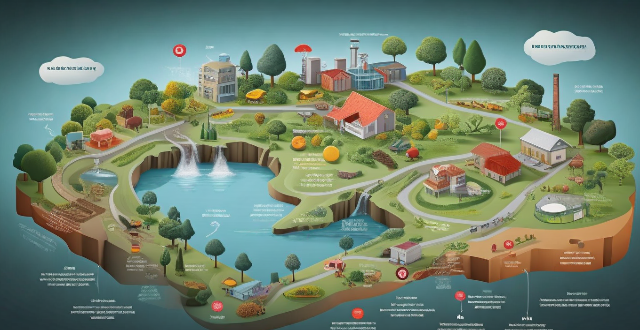
How does climate change affect agriculture and food security ?
Climate change significantly affects agriculture and food security by increasing extreme weather events, altering crop yields and quality, impacting livestock, and raising concerns about food access, affordability, and biodiversity loss. Adaptation and mitigation strategies such as sustainable farming practices, water management, genetic research, and policy initiatives are essential to build a resilient food system.
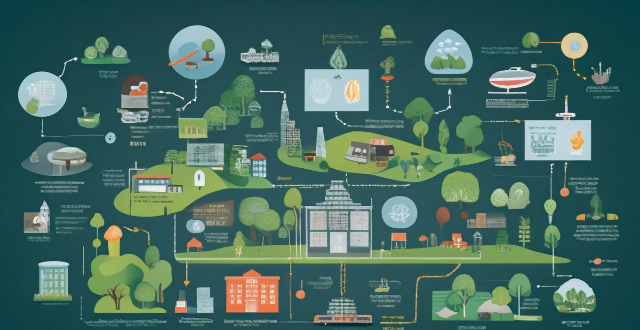
Can technology help improve food security in a changing climate ?
In the face of climate change, technology offers numerous solutions to enhance food production and distribution, contributing to global food security. Key areas where technology can make a significant impact include precision farming, genetic engineering, data analytics, water management, digital infrastructure, supply chain optimization, urban agriculture, and policy support. By leveraging these technological advancements, we can mitigate the adverse effects of climate change on agriculture and ensure a stable and sustainable food system for all.
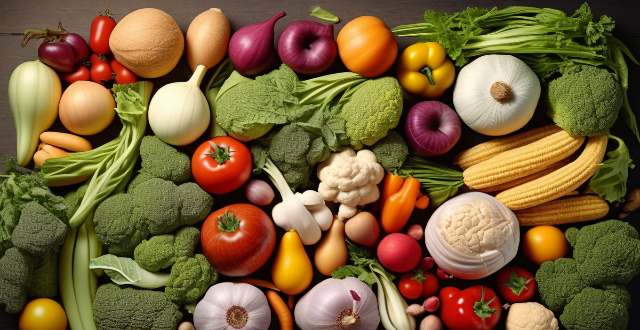
What are the best sources for buying organic food ?
The article discusses various sources for buying organic food, including farmers markets, online stores, health food stores, and community supported agriculture (CSA) programs. Each option has its own set of benefits and drawbacks, such as freshness, convenience, selection, cost, and support for local agriculture. The article emphasizes the importance of making healthy choices for oneself and family by choosing organic food.
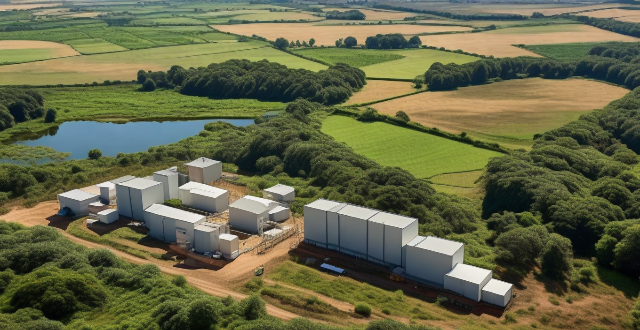
How does climate variability impact agriculture and food security ?
Climate variability significantly impacts agriculture and food security by affecting crop yields, livestock production, and the availability and accessibility of food. Direct impacts include changes in temperature, precipitation, extreme weather events, and CO₂ levels, while indirect impacts involve pest and disease outbreaks, water resource availability, soil quality, ecosystem services, market prices and trade, food accessibility and nutrition, and farmer livelihoods. Mitigation and adaptation strategies such as crop diversification, improved water management, breeding resilient crops, sustainable soil management, early warning systems, insurance and safety nets, policy support, and international cooperation are essential for building a climate-resilient food system.
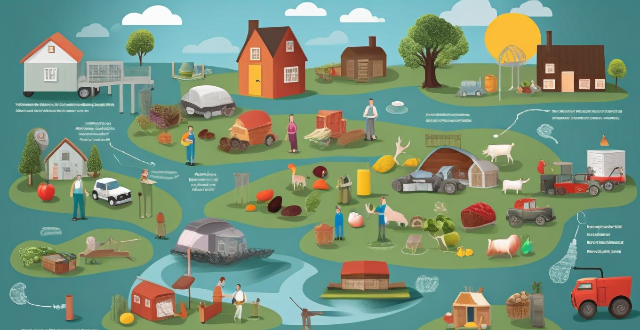
What impact do climate predictions have on agriculture and food security ?
Climate predictions significantly impact agriculture and food security by enabling informed decision-making among farmers. These decisions cover aspects such as crop planning, pest and disease management, water conservation, livestock care, and adaptation to market dynamics. By considering predicted weather patterns, temperature changes, and precipitation levels, farmers can optimize crop yields, reduce losses due to pests and diseases, conserve water resources, ensure proper nutrition for livestock, and adapt to changing market conditions. This results in sustainable agricultural practices that contribute to global food security.

What are the gender-specific impacts of climate change on agriculture and food security ?
Climate change has gender-specific impacts on agriculture and food security. Women often bear the brunt of these impacts due to their roles in household food production and preparation, income generation through small-scale farming, and community leadership in natural resource management. Men, on the other hand, may experience changes in employment patterns, loss of income, increased stress, and social conflicts over resources. Both women and men face challenges such as reduced crop yields, increased workload, loss of traditional knowledge, health risks, and reduced dietary diversity. Addressing these gender-specific impacts requires a comprehensive approach that promotes gender equality and empowers both women and men to adapt to climate change.

What is the importance of sustainable agriculture in achieving the Sustainable Development Goals ?
Sustainable agriculture is crucial for achieving the United Nations' Sustainable Development Goals by ensuring food security, improving rural livelihoods, and protecting the environment. It promotes soil health, increases crop yields, encourages biodiversity, creates jobs in rural areas, enhances income, promotes gender equality, reduces greenhouse gas emissions, conserves water resources, prevents land degradation, supports climate change mitigation and adaptation, stimulates economic growth, and reduces poverty. By adopting sustainable agriculture practices, we can create a more equitable and resilient world for future generations.

Is it ethical to engage in deforestation for agricultural purposes ?
Is it ethical to engage in deforestation for agricultural purposes? This question requires a nuanced understanding of both environmental ethics and the needs of agriculture. The case against deforestation includes loss of biodiversity, climate change, and soil erosion and water quality issues. However, the case for agricultural deforestation includes food production, economic opportunities, and sustainable practices. To navigate the ethical implications of deforestation for agriculture, a balanced approach is crucial, including reducing new land needed, regenerative agriculture, agroforestry, policy and regulation, and public awareness. While the need for agricultural land is pressing, engaging in deforestation without considering its broader ecological consequences is not ethically sustainable. It is essential to find ways to meet our agricultural needs while also preserving the integrity of our planet's ecosystems. By promoting sustainable agriculture and implementing protective measures, we can move towards a future where food production and forest preservation coexist harmoniously.

How are food safety regulations enforced by governments ?
Governments around the world enforce food safety regulations through various methods, including legislation and policy development, inspection and compliance checks, licensing and certification, education and training, penalties and enforcement actions, public communication, and international cooperation. These efforts aim to protect consumers from harmful substances and contaminants in food products while promoting fair trade practices among producers and retailers.

How does climate change affect food security and nutrition ?
Climate change significantly impacts global food security and nutrition by causing extreme weather events, altering ecosystems, reducing water availability, affecting marine life, posing agricultural challenges, and diminishing nutrient intake. Mitigation strategies include sustainable agriculture practices, dietary diversification, and research and development to ensure future food security and nutrition.
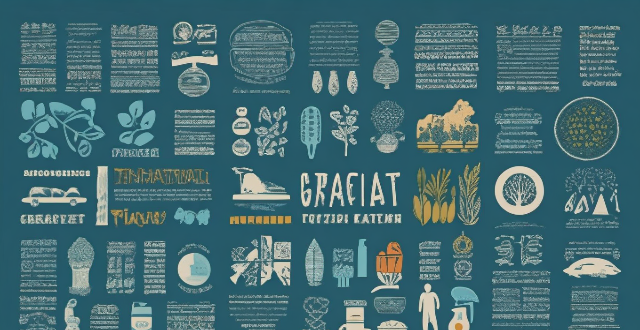
How does climate change affect agriculture ?
The text provides an overview of the impacts of climate change on various aspects of agriculture, including temperature variations, precipitation patterns, water resources, pests and diseases, soil health, livestock management, food security, and mitigation and adaptation strategies. It highlights the challenges faced by farmers and policymakers in addressing these impacts and emphasizes the need for immediate attention and adaptation strategies to ensure future food security and sustainability.
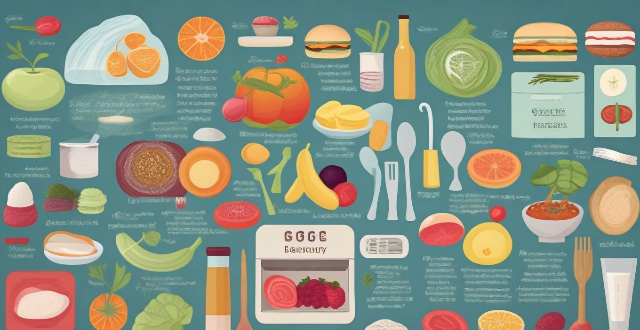
What is the relationship between climate loss and damage and food security ?
The article discusses the complex relationship between climate loss and damage and food security, highlighting how extreme weather events and slower changes in climate can impact food production. It details the consequences of these impacts for food security, such as reduced crop yields, increased prices, loss of livelihoods, nutritional impacts, and displacement. The article also suggests mitigation and adaptation strategies to address this issue, including reducing greenhouse gas emissions, sustainable agriculture practices, crop diversification, improved irrigation systems, early warning systems, and research and development. The conclusion emphasizes the need for collective action to ensure food security in the face of climate change.
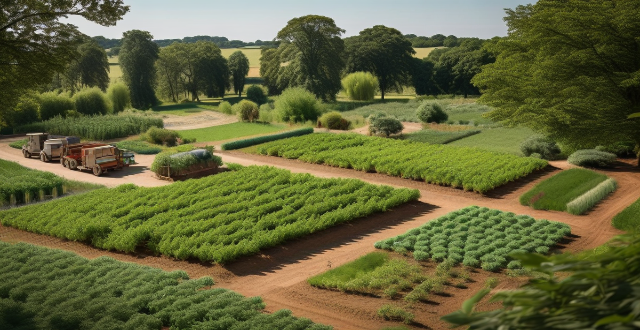
What strategies can be implemented to mitigate the effects of climate change on food systems ?
Strategies to Mitigate the Effects of Climate Change on Food Systems include sustainable agriculture practices, agroforestry and reforestation, climate-resilient crop breeding, livestock management, food waste reduction, policy and advocacy, and research and development. These efforts aim to build more resilient food systems capable of withstanding the challenges posed by climate change, ensuring food security for future generations.

Is organic food healthier than non-organic food ?
The debate over whether organic food is healthier than non-organic food has been ongoing for decades. While some argue that organic food offers more nutritional benefits and is better for the environment, others believe that the differences are negligible and that non-organic food can be just as healthy. In this article, we will explore both sides of the argument and try to answer the question: is organic food healthier than non-organic food? Arguments in favor of organic food include nutritional benefits, pesticide reduction, and environmental impact. Organic farming practices focus on building healthy soil and growing strong plants, which results in produce that is richer in nutrients like vitamins, minerals, and antioxidants. Additionally, organic food is grown without the use of synthetic pesticides and fertilizers, reducing the risk of harmful chemicals ending up in our food supply. Finally, organic farming practices promote biodiversity, reduce pollution, and help preserve natural resources. Arguments against organic food include minimal nutritional differences, low pesticide residues, and higher cost. While some studies have found that organic food is more nutritious than non-organic food, other research suggests that the differences are minimal. The levels of pesticides found in non-organic produce are generally well below what is considered safe by regulatory agencies, and washing produce thoroughly can further reduce pesticide residues. However, one of the biggest drawbacks of organic food is its higher cost compared to non-organic options. Ultimately, the decision of whether to choose organic or non-organic food depends on personal preference and individual circumstances. If you prioritize nutrition, reducing your exposure to pesticides, and supporting environmentally friendly farming practices, then organic food may be the way to go. However, if you are concerned about cost or believe that the nutritional differences between organic and non-organic food are minimal, then non-organic options may be suitable for you.
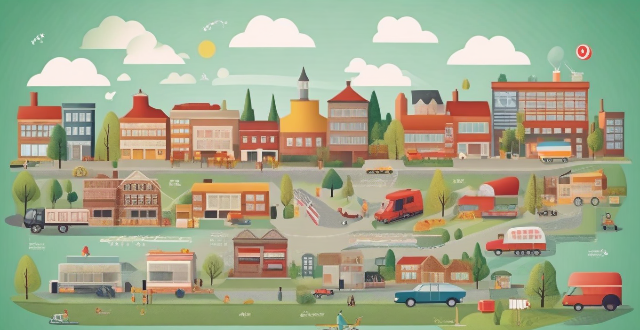
How can urban planning and design contribute to enhancing urban food security under changing climatic conditions ?
The text discusses the importance of urban planning and design in enhancing food security in cities, especially under changing climatic conditions. It outlines key strategies such as promoting urban agriculture, sustainable land use planning, improving access to healthy food options, supporting local food production and consumption, and fostering innovation and collaboration. These strategies aim to create resilient and self-sufficient urban environments that can adapt to climate change while ensuring food security for all residents.

How can climate models be used to improve agricultural practices and food security ?
Climate models play a critical role in enhancing agricultural practices and ensuring food security by forecasting weather conditions, mitigating climate change effects, enhancing crop yield potential, and aiding in policy making. Applications include adapting to climate variability through crop diversification and improved plant breeding, strengthening resilience through water management and soil health maintenance. The use of these models is crucial for adapting to changing environmental conditions and ensuring global food security.
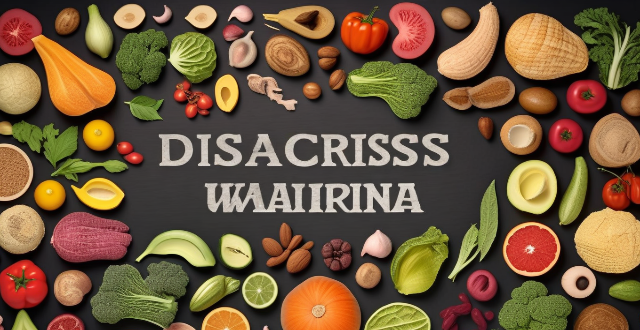
What are the impacts of global warming on agricultural production and food supply ?
This article discusses the impacts of global warming on agricultural production and food supply, including changes in climate patterns, reduced crop yields, loss of biodiversity, decreased nutrient content, heat stress in livestock, changes in feed availability, increased risk of disease, reduced food availability, increased food prices, and food safety concerns.
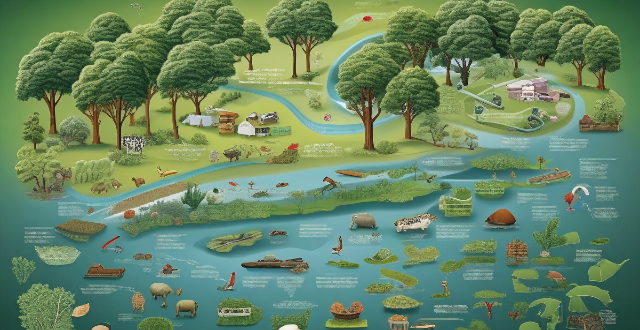
How do rising temperatures and altered precipitation patterns influence crop yields and food availability ?
This article explores the impact of global climate change on agriculture, specifically focusing on rising temperatures and altered precipitation patterns. It highlights how these changes can affect crop yields through increased evapotranspiration, altered growth cycles, pest and disease pressure, and changes in pollination. Additionally, it discusses how rising temperatures can impact food availability by altering the distribution of crops, increasing post-harvest losses, and causing market price fluctuations. The article also examines the effects of altered precipitation patterns on crop yields and food availability, including water stress, nutrient leaching, flooding, soil erosion, and irrigation needs. Finally, it emphasizes the importance of understanding these impacts and developing strategies to mitigate their effects on crop yields and food availability to ensure food security for future generations amidst a changing climate.
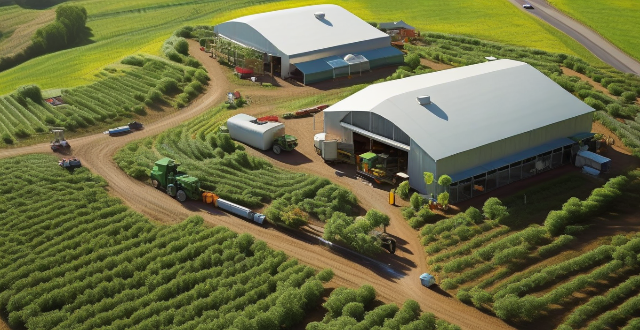
What role do sustainable farming practices play in maintaining food security amidst changing climate conditions ?
Sustainable farming practices are crucial for maintaining food security amidst changing climate conditions. They help farmers adapt to these changes by enhancing soil health, improving water management, promoting crop diversification, and integrating livestock and crop production. These practices also mitigate the impacts of climate change on agriculture by reducing greenhouse gas emissions, promoting biodiversity, and encouraging renewable energy use. Supporting smallholder farmers through training, access to markets, and cooperatives is essential for implementing sustainable practices at a larger scale. Overall, sustainable farming practices are vital for building resilient agricultural systems that can withstand climate change while ensuring food security for future generations.
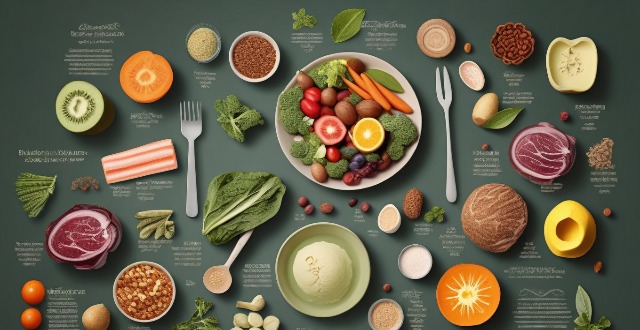
How does climate change influence nutrition and dietary health through changes in food production ?
Climate change affects nutrition and dietary health by altering food production, impacting crop yields, nutrient content, pest and disease pressure, and the availability and accessibility of food. Sustainable agricultural practices and adaptation are crucial for mitigating these effects and ensuring global food security.

What are the effects of extreme weather events on agriculture ?
Extreme weather events such as droughts, floods, heatwaves, and storms have significant impacts on agriculture. These effects can be categorized into direct and indirect consequences, including reduced crop yields, soil degradation, crop destruction, soil erosion, heat stress, water loss, physical damage to crops and livestock, economic impacts, food security issues, environmental impacts, and social impacts such as rural poverty and migration. Addressing these challenges requires a comprehensive approach that takes into account both the immediate needs of affected farmers and the long-term resilience of agricultural systems.
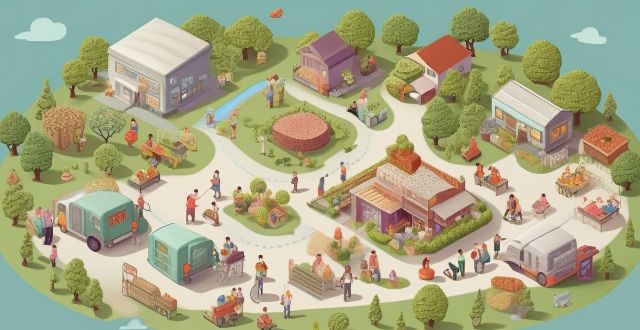
What is the relationship between climate variability, pest outbreaks, and food safety ?
Climate variability can lead to increased pest populations, impacting food safety through contamination, physical damage, and toxin production. Effective monitoring, integrated pest management, and adaptation strategies are crucial to address these challenges.

What are the benefits of organic food ?
The provided text discusses the various benefits of organic food. The key advantages include: 1. **Health Benefits**: - No harmful chemicals, higher antioxidant levels, better nutritional content, and reduced risk of antibiotic resistance. 2. **Environmental Benefits**: - Sustainable farming practices, reduced pollution, lower energy consumption, and carbon sequestration. 3. **Economic Benefits**: - Supporting local farmers, creating job opportunities, long-term cost savings, and market diversity. Overall, choosing organic food contributes to personal health, environmental sustainability, and economic growth.
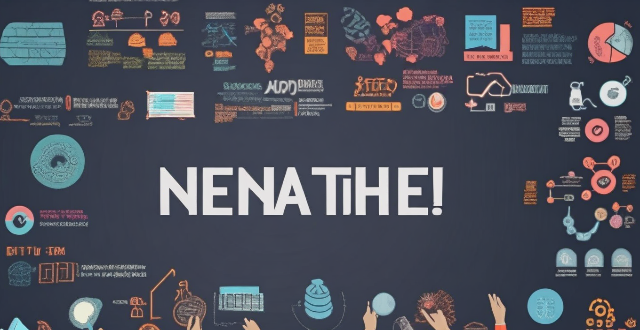
How do food festivals impact tourism in a region ?
Food festivals significantly impact tourism in a region, offering economic benefits and promoting cultural exchange. They attract visitors, boost spending, create jobs, and support local businesses. Culinary diversity, community engagement, and media exposure enhance the region's brand image. Sustainability is crucial for supporting local farmers and managing waste. Successful examples include tomato, wine & cheese, and seafood festivals. Food festivals are powerful tools for driving tourism and enriching the travel experience.

What makes street food unique in different parts of China ?
Street food in China reflects the country's diverse cultural heritage and regional differences. From hearty meals in the north to seafood delights in the south, each region offers its own unique flavors and dishes. The cuisine of eastern China is influenced by its coastal location and the use of soy sauce, while western China's mountainous terrain and ethnic diversity are reflected in the variety of street foods available. Regardless of where you go in China, you're sure to find something delicious to try!
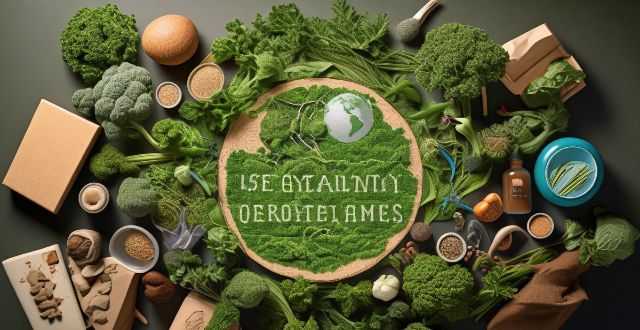
Is it ethical to use genetically modified organisms (GMOs) in agriculture ?
The use of genetically modified organisms (GMOs) in agriculture is a complex and contentious issue that raises ethical questions. Proponents argue that GMOs offer benefits such as increased crop yields, reduced pesticide use, improved nutrient content, and environmental sustainability. Opponents raise concerns about human health risks, economic concentration, environmental impact, and ethical considerations. Key ethical considerations include scientific evidence, public perception, equity and access, environmental stewardship, ethical principles, regulatory oversight, long-term monitoring, global collaboration, innovation and alternatives, and education and awareness.
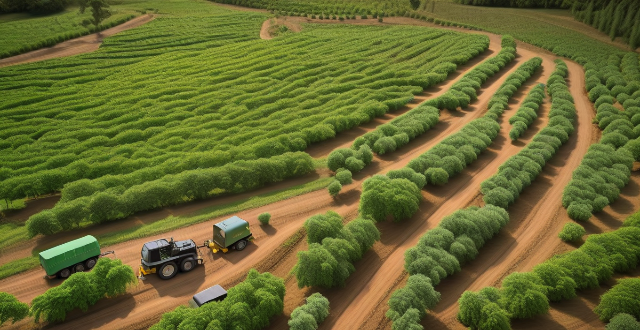
How do different regions around the world cope with climate change-related threats to their food sources ?
Coping with Climate Change: Global Strategies for Food Security explores how various regions are adapting agricultural practices to ensure food security amidst climate change. Asia is focusing on modernizing irrigation systems and researching drought-resistant crops. Africa is promoting small-scale farming techniques and agroforestry. Europe is utilizing precision farming and developing climate-smart crops. North America is practicing rotational grazing and using genetic engineering for more resilient crops. South America is embracing agroecology and community-based adaptation. Australia and Oceania are managing soil salinity issues and heat tolerance research. Policy initiatives include improving access to finance for smallholder farmers and establishing regulatory frameworks. Community-level actions involve farmer training programs and local innovations like community gardens. Technology adoption includes mobile apps for weather information and remote sensing for crop monitoring. The conclusion emphasizes the importance of combining traditional knowledge with modern technology to address climate change and ensure global food security.
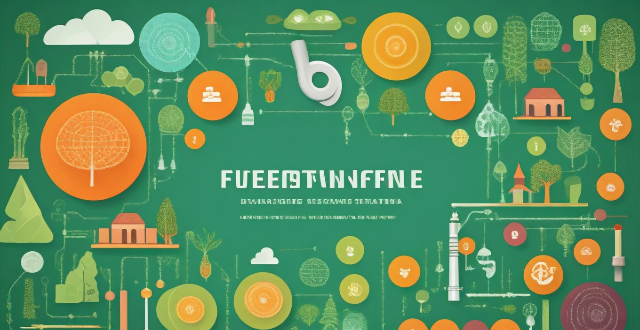
What are the benefits of using climate-smart technology in agriculture ?
The text discusses the benefits of using climate-smart technology in agriculture, which includes enhanced productivity and yield, improved water management, reduced greenhouse gas emissions, adaptation to climate change, improved soil health, increased resilience to pests and diseases, promotion of agroforestry, and enhanced access to markets. These benefits contribute to sustainable agricultural practices that ensure food security while protecting the environment.
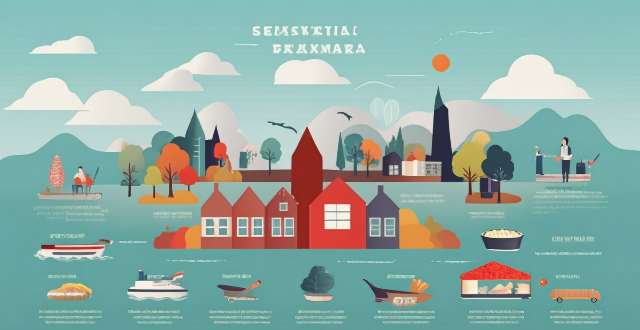
What is the relationship between climate change, food security, and national stability ?
The essay discusses the relationship between climate change, food security, and national stability. Climate change is causing extreme weather events that reduce crop yields and threaten biodiversity, leading to water scarcity. Food insecurity can result from these impacts, causing economic downturns, social unrest, migration, and political instability. Stable nations are better equipped to address these challenges through resource allocation, research, international cooperation, and emergency response.

How has global warming affected agricultural practices and food security ?
Global warming has significantly influenced agricultural practices and food security worldwide, affecting areas such as altered climate conditions, pest and disease management, crop variety and production, and food security concerns. These changes include irregular rainfall patterns leading to droughts and floods, water scarcity, extreme temperature fluctuations causing heat waves and cold spells, increased pest infestations and new pest species introduction, elevated disease risks, changes in crop yields and shifting production regions, altered planting seasons, price volatility, supply disruptions, nutrient depletion, and loss of biodiversity. Farmers must adapt to these new realities to ensure sustainable food systems for the future.